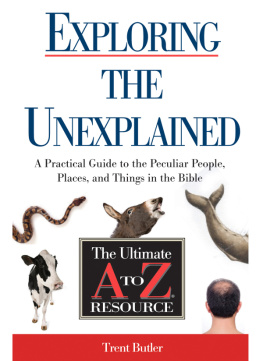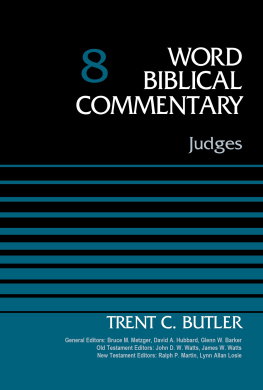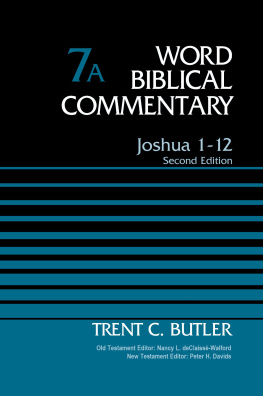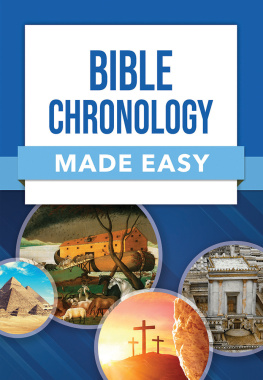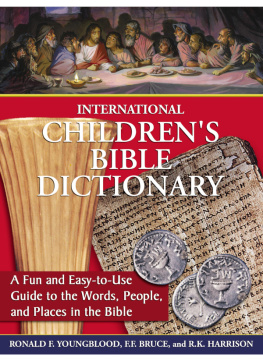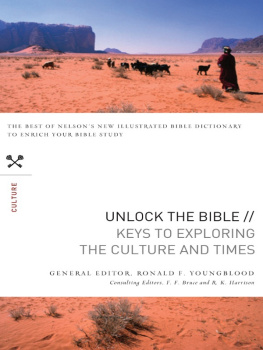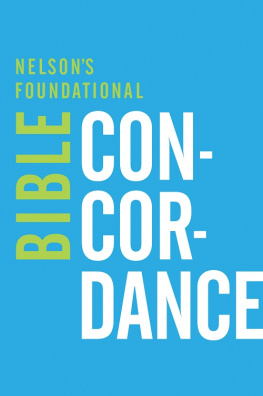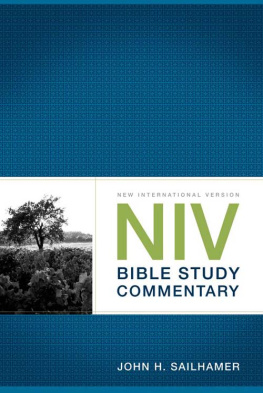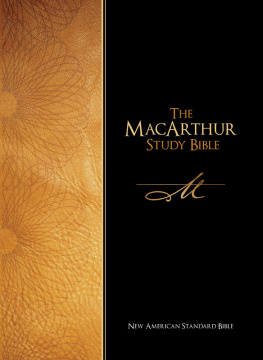A peculiar book lies before you. This book isnt peculiar because it is about the Bible, but much of what the Bible says can be peculiar to our modern ears. Here we will explore and elaborate upon some of the more unusal aspects of the Bibles people, places, events, things, and stories. Its peculiar people range from a 969-year-old man, still alive and kicking, to a young lad who ran away from Roman soldiers without any clothes on. Its peculiar places include a city turned to salt and a foreign capital whose people repent and follow God after hearing a five-word sermon. Its peculiar events span from a father ready to sacrifice his son on an altar, to a young man falling to his death after a sermon puts him to sleep. There are also peculiar things in the Bible, like a giants armor on a young kid or, most important and peculiar of all, a blood-stained cross serving as the torture and death instrument for an innocent man. Some stories seem strange to modern readers, like Deuteronomys call to annihilate whole nations or Jesus call for disciples to take up a cross and follow Him. This book will explore these issues, and many like them.
What makes something peculiar, especially something in the Bible? There are several ways:
1. It can be odd or noticeably different, like Noahs ark.
2. It can be strange or not fitting normal expectations, such as manna in the wilderness.
3. It can be weird or out of sync with daily life, such as the giant Anakim or Nephilim.
4. It can simply be unusual or rare, like the man with six fingers on each hand and six toes on each foot.
5. It may be irregular, as the observance of Passover in the second month of the year instead of on the first month.
6. It may be uncharacteristic, like Jesus the Jew deciding to go through Samaria rather than bypassing it.
7. It can be unique, such as Jesus the true God/man.
P ECULIAR U SES FOR A P ECULIAR
D ICTIONARY
You go to a dictionary to find the meaning of a word or its spelling, but this dictionary offers much more. It skips over the people, places, and things you already know about, and focuses on the things that you might not understand and sometimes avoid. This peculiar dictionary invites you to develop new and interesting ways to put it to good use. Here are a few suggestions:
1. Look up a biblical person, place, or thing whose meaning or location in Scripture you cannot recall.
2. Read all the significant passages about the term you are investigating.
3. Learn how to spell unusual names and words.
4. Play a game with family or friends. Let one person be the biblical sage. The sage will open the dictionary to a page at random and ask a specific player or team to define, spell, and locate in Scripture a term on that page.
5. Play a game with family or friends. Let a chosen sage open the dictionary, select a word, and announce its meaning without giving the players the actual word. Give the Book and Chapter in the Bible where the term is found, and challenge the others to guess the word. The sage may find it necessary to provide clues such as identifying the term as a person, place, or thing, give approximate location in the chapter, such as a verse that comes before the term or after the term, or give the beginning word of the verse.
6. Assign a page of the dictionary to each individual, pair of people, or team. Give them time to read the page and select the term whose issue they are most interested in discussing. Let each individual or group lead the participants in a discussion of the issue raised and how that issue applies to their specific location and culture today.
Happy dictionarying, you quite peculiar people! (See Ex. 19:5; Deut. 14:2; 26:18; Ps. 135:4; Titus 2:14; 1 Peter 2:9 KJV .)
Aaron Person Lev. 10:17
Aaron was the priest who could not mourn his sons, who spoke for Moses, and who formed a golden calf. The brother of Moses and Miriam and the first high priest, he joined Moses in the sin of unbelief that kept them from entering the Holy Land (Num. 20:713).
Issue: How can a godly person do marvelous things for God, and yet still commit flagrant sins?
Aarons Rod Thing Ex. 78; 17; Num. 16; 20:711
Aarons rod was a shepherds staff that became a snake, produced water, and blossomed. God used Aarons rod or staff to perform miracles in Egypt and in the wilderness.
Issue: What earthly objects can God use for His purposes? What power do magic wands and wizards rods have?
Abaddon Place Job 26:6; 28:22; 31:12; Ps. 88:11; Prov. 15:11; 27:20; Rev. 9:11
Abaddon literally means Destruction. It is the home of the dead and personified as the angel of the bottomless pit. It is used in parallel with Sheol and Death. Abaddon is known and controlled by God.
Issue: What is your destiny after death?
Abana Place 2 Kings 5:12
Abana was a beautiful Syrian river flowing through Damascus where Naaman wanted to be cleansed. God sent him instead to the muddy Jordan. See also Pharpar.
Issue: Why does God often choose a particular place to work even when it seems inferior to another place?
Abba Person Mark 14:36; Rom. 8:15; Gal. 4:6
Abba is the Aramaic word for father that Jesus used when talking to God. It shows the intimacy of the relationship between Father and Son. Believers can know that intimacy and use that term in speaking with God.
Issue: How intimate and trusting are you with God in your prayer life? Do you keep certain things buried in your heart that you do not share with your Heavenly Father?
Abdon Person Judg. 12:1315
Abdon was a wealthy judge of Israel who had forty sons, thirty nephews, and seventy donkeys. He judged Israel for eight years.
Issue: Is wealth a requirement for leadership?
Abednego Person Dan. 1:7; 2:483:30
Abednego is the Babylonian name for the Hebrew youth Azariah, who was thrown into and survived the deadly flames of the kings fiery furnace. He worshipped God even though it meant disobeying the king. He became one of the political leaders of the Babylonian Empire because he obeyed God.
Issue: Are you willing to trust God when people threaten to kill you?
Abels Sacrifice Thing Gen. 4; Heb. 11:4
God accepted the fattest of Abels flock as a sacrifice while rejecting his brother Cains plant or fruit offering. Gods displeasure is with Cain and his attitude, not with the nature of the sacrifice. Cain did not do what was right.

